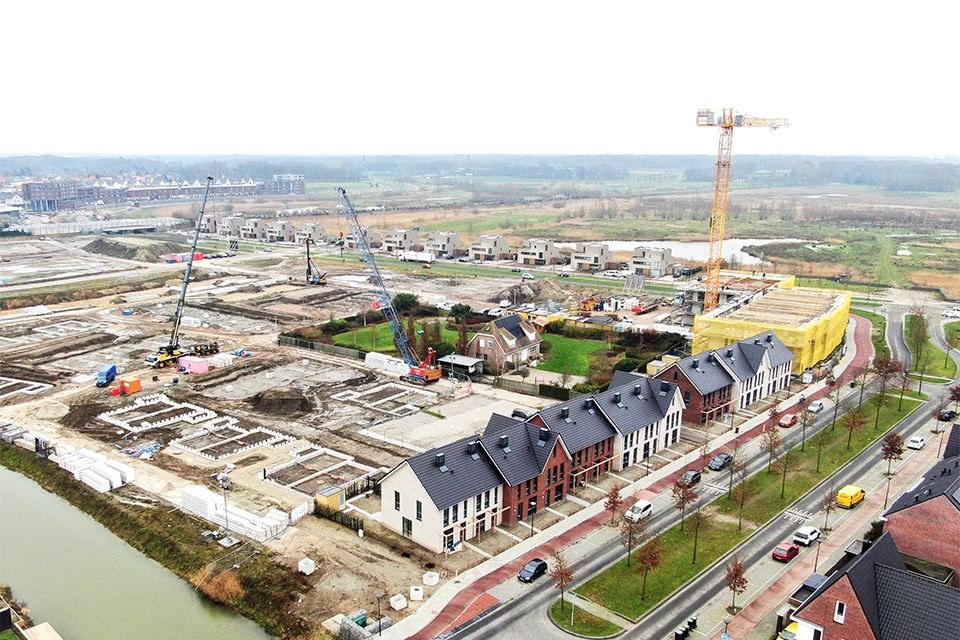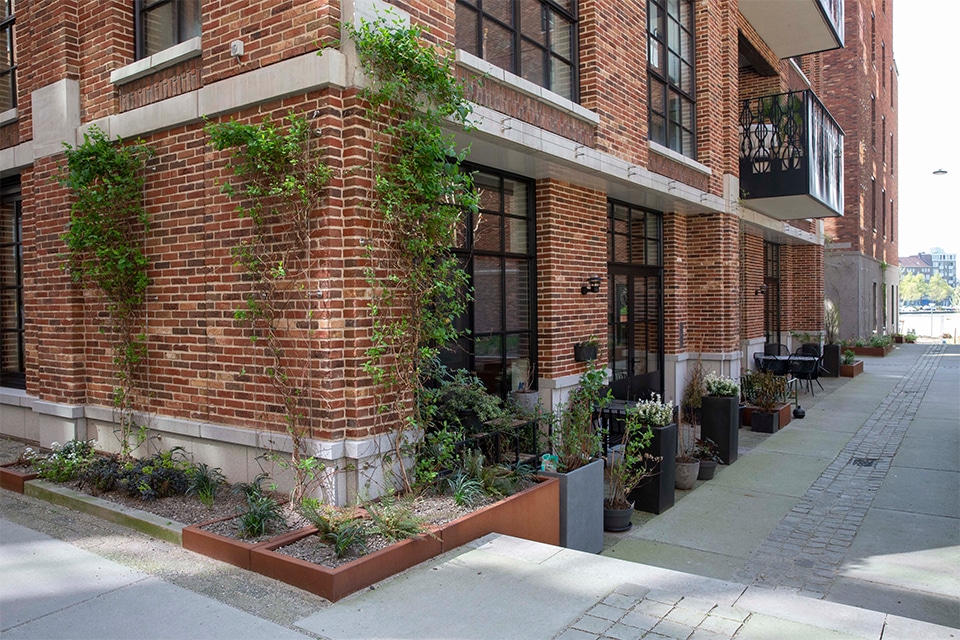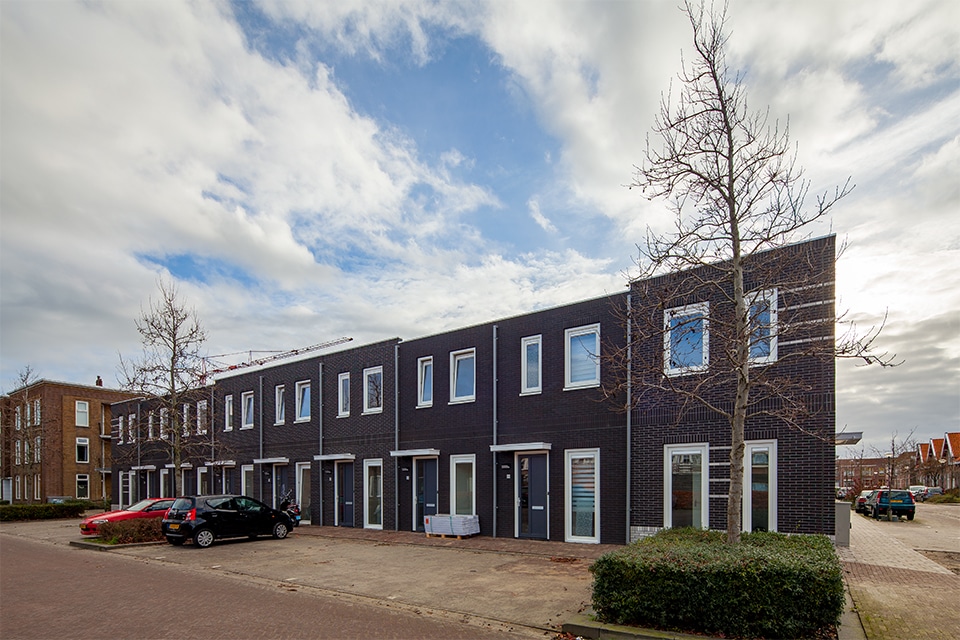
Windows made of bio-attributed PVC
Sustainable innovation through chain collaboration
Profile supplier Kömmerling and window frame manufacturer Kumij jointly developed plastic window frames made of bio-attributed PVC. The innovative window frames and doors were used for the first time in the preservation of nineteen social housing units in Steenwijk; a project of BAM Wonen. "Innovation in the field of sustainability is never finished."

This project involves a total of over one hundred window frames, fitted with triple insulated glass. This gives the homes an A+++ energy label after the renovation. Jelmer Bijlsma, manager of sustainability and innovation at Kömmerling Netherlands, looks back on the project with satisfaction. "We were confident beforehand that it would go well, because the final product is one-to-one with the alternative. Still, it's great that this first project succeeded, because in this way we are making steps as an industry to become more sustainable."
Kömmerling has had good contact with the raw material supplier in question for years. Two years ago, it knocked on Kömmerling's door, asking if it could work with bio-attributed PVC. Kömmerling energetically went ahead and also involved VHZ Group, the parent company of window frame manufacturer Kumij. Director Freddy van der Werff of Kumij: "Sustainability is also a spearhead for us. As a market leader, we like to be at the forefront and are always looking to improve and make our products more sustainable. Together with the other links in the chain, this is how we reduce our carbon footprint and take responsibility."
Nice practical test
The parties entered into discussions with BAM Wonen, contractor for the project in Steenwijk. The conclusion was that this was a great project to test the new window frames in practice. Van der Werff: "BAM Wonen was very enthusiastic about taking on this first together. It's great that we can work together like this as a chain, then the ball starts rolling. We work together more often, particularly on renovation projects, and we are used to being completely transparent with each other. That works nicely together."

The only difference between these window frames and traditional plastic window frames, is the raw material; a residual product created in the processing of wood. This raw material has already been converted into PVC, so qualitatively and aesthetically there is no difference. Bijlsma: "Of course, the entire production process must be well documented and certified so that it is demonstrably a fossil-free product. That does require some attention, because you have to ensure independent certification and audits. The only disadvantage of this scarce resource is that it is a bit more expensive for now. Further scaling up is needed, and it is happening, because more and more raw material suppliers are investing in reusing oily residues for new materials. Also, laws and regulations are being tightened up all the time, which reinforces my belief that this can happen quickly."
World first
A world first, of which both companies are very proud. The use of this innovation will save about 6,000 kilograms of CO2 on this project. But: innovation in the field of sustainability is never finished, the two point out. After all, it was only two years ago that the first 100% recycled window frame was made and that was also a first at the time. Van der Werff: "The steps are going fast now and we can keep improving. Ultimately, this is another intermediate step. We get a lot of enthusiastic reactions from other companies, who also want to get started. There are even follow-up projects already in the pen. This was a great project to gain experience with together and, after thorough preparation, it went exceptionally well. We can now set our sights on rolling it out in larger projects."



